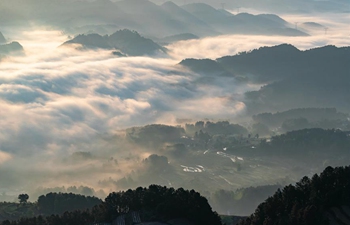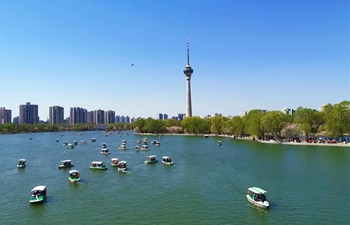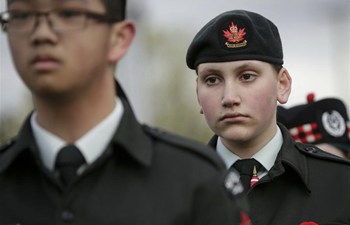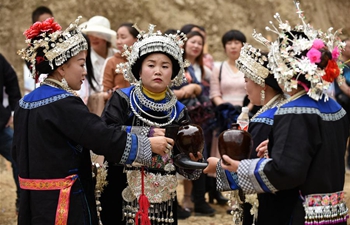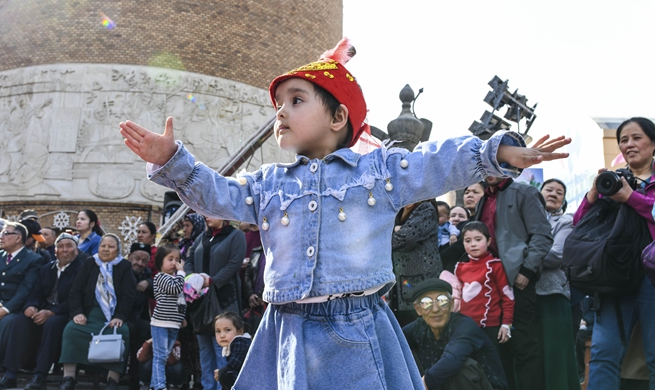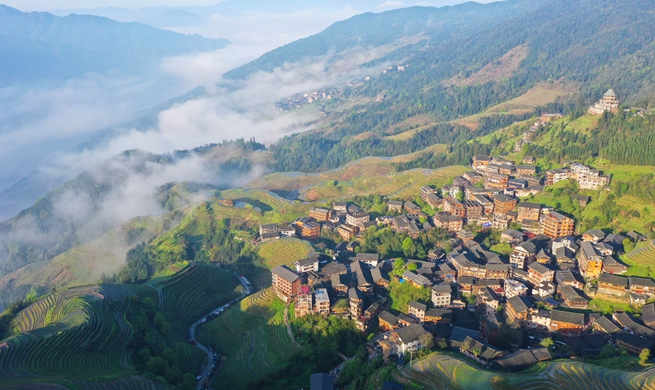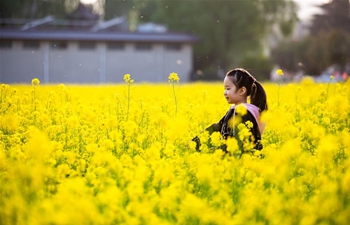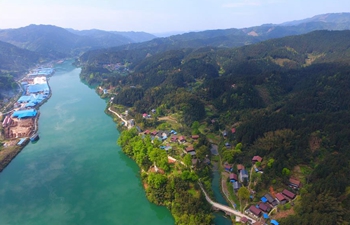BEIJING, April 8 (Xinhua) -- What protected the terracotta army bronze weapons from metal corrosion after being buried for over 2,000 years? A new article by Chinese and British researchers shows that the soil where the bronze was buried may have contributed to their good preservation.
Since the first excavation of the terracotta army in China in the 1970s, thousands of bronze weapons held by the warriors such as spears, lances and swords were recovered. Although the wooden components of the weapons were decayed, the preservation of the bronze parts is still good, with many of the weapons displaying shiny, almost pristine surfaces and sharp blades.
Published in the international journal Scientific Reports, the study challenges a widely held belief that the craftsmen of the Qin Dynasty (221 B.C.-207 B.C.) mastered an advanced anti-rust technology to prevent bronze from decaying, according to the China Science Daily reported Monday.
This belief was based on the detection of chromium traces on the surface of bronze weapons. Chromium is a chemical element, and it has been widely used as a metal that can be polished while resisting tarnishing.
Previous studies found that some weapons were coated with a layer of chromium dioxide before burial.
However, chromium presence was uncorrelated with bronze preservation. Researchers of this study analyzed 464 weapons and identified chromium only in 37 of them, confirming that the presence of this element on the metal surfaces was not universal.
Instead, they found that the lacquer used to cover warriors and wooden parts of weapons, such as shafs, handles and crossbow stocks were rich in chromium, demonstrating that chromium on the metals was contamination from nearby lacquer after burial.
Rather than the chromium on the weapon surface, it was the burial soil that played an important role in the good metal preservation.
According to researchers, the moderate basicity, small particle size and high chemical tin content of the soil within the site prevented the formation of acids that would attack metal integrity.
The Terracotta Army was built by Emperor Qinshihuang of the Qing Dynasty, who unified China for the first time.
The study was led by a team of researchers from the University of Cambridge, the University of Science and Technology Beijing and the Emperor Qinshihuang's Mausoleum Site Museum.




